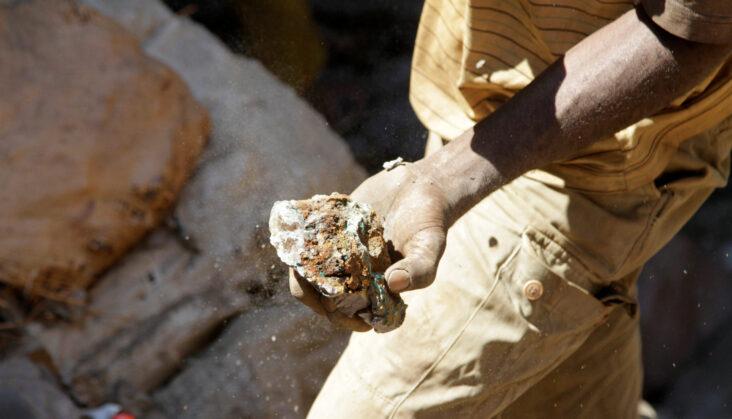Africa-Press – Lesotho. For the US Government, the SPR was an underground salt tank that had to be built in Utah as a recession and warproof facility in response to the twin bombings on the World Trade Centre on 9/11.
The US Government had relied on releasing oil from the underground storage tank in July of 2008 when oil prices got to an unbearable peak of $147 per barrel.
High oil prices that saw the US importing up to $1bn daily formed part of the policy agenda of the Obama administration, with his popular speech at the University of Cairo in 2009 that laid down an implementation schedule for the fast-tracking of research and development funding for fracking.
The race to decarbonise Fracking led to legislation to un-ban the drilling of oil offshore in places like Alaska and the Gulf of Mexico, the latter of which has made the US a major oil producer to date.
More importantly, his speech set the agenda for a bold move to clean energy, with President Obama meeting with the outgoing Politburo in Beijing in 2010, led in CCP by Premier Wen Jiabao and President Hu Jintao, to begin the framework of the Paris Climate Accord and Trans-Pacific Partnership.
With the rapid industrialisation of China, the government was not compelling its companies to higher ESG standards for less CO2 emissions, and more sophisticated effluent systems in water and wastewater management.
China quickly realised that the emergence of companies like Tesla was driving the move from combustion fuelled engines. This led the Organization of the Petroleum Exporting Countries (OPEC) to have a combined daily production volume of 30.6m barrels of crude oil thereby placing non-producing western countries at risk.
China had to implement its energy policy through companies like CNOOC and SINOPEC in Africa, exchanging oil for infrastructure and loan deals as a means to secure the country’s energy future.
They also had to invest in the long term direction of funding state-backed enterprises that will strategically over the next decade, rise up to become the largest and highest producers of cobalt, an element mined from layers of copper and nickel, that are vital in making lithium-ion ore batteries in electric cars.
As China could not get domestic companies to compete with Nissan and Tesla, a large supply of cobalt could be equally as useful. Ethical concerns Today, electric cars have a global adoption rate of 1.7%. But the prices on acquiring the raw material for production has steadily risen.
In 2016 and 2019, while America grappled with a President who wanted to take them back to the coal era of the 1930s, the Chinese Government-backed Molybdenum was quietly acquired Freeport McMorran (An American Miner) for $2.2bn. Acquiring two of the largest mining sites in DR Congo, the company now owns 15 of the 19 largest mining sites in Central Africa.
While the US government has been concerned about the environmental, social and governance standards of American companies, and about the ‘boys club’ way of doing business that operates in Africa, the Chinese government has gotten into the trenches to acquire the basic assets necessary for a clean energy transition.
Workers have constantly complained about how their safety, social and economic standards have dropped at these mines since the Americans sold off and handed them over to the Chinese, which begs the question; shouldn’t safety and support of workers be considered important for sourcing the primary material necessary for a transition to clean energy? An undecided future It appears there are more questions than answers in regards to this news.
What will happen as the adoption of electric cars increase to maybe 50% over the next 30 years, and the global need for cobalt rises from 144,000 metric tonnes required for 2020 at 1.7% adoption to over 3,000,000 tonnes annually? Where will it be sourced from and under what conditions? What will be the social, economic and political stability of the sourced countries, and will increased research and development lead to a new mineral in the serious quantity that can be used for lithium-ion batteries production?
These will be vital questions for policymakers as companies like General Motors have already announced their decision to phase out the production of SUVs, sedans and trucks with internally designed fuelled combustion engines by the year 2040.
What will happen to OPEC? The reliance of those countries on revenues from oil and gas as a major source of funds to run its yearly budgets, and in some instances fund its sovereign wealth fund, as opposed to other countries who rely on taxes from a producing private sector.
The Norwegian Sovereign Wealth Fund (which started investing in 1978 and currently has over 1.2 trillion dollars in assets) recently decided to sell off all stocks in its equity portfolio that use fossil fuels.
Is this jumping the gun or should it be food for thought for developing countries who believe oil was God’s gift to them to continue their lifestyle of easy wealth?
For More News And Analysis About Lesotho Follow Africa-Press





![THE RULING PARTY [ RFP] MPs DEFECT TO DC AND BAP THE RULING PARTY [ RFP] MPs DEFECT TO DC AND BAP](https://static.africa-press.net/lesotho/sites/62/2026/02/sm_1771363891.997697-218x150.jpg)
